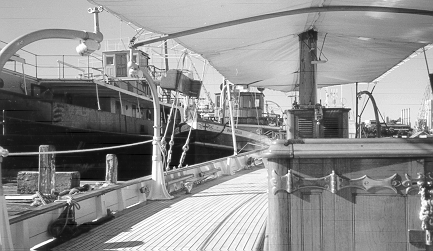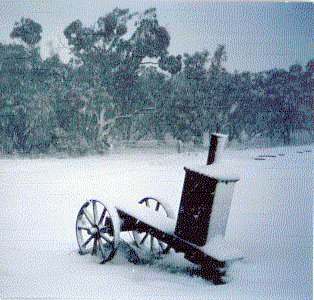| We think of our modern selves
as far-travelling, highly mobile people, but our grandparents often
covered immense distances, usually in severe discomfort. As some kind of
recompense, theirs was the last
time in the history of the western world that a human being could live a
private life. People wrote letters to each other, then, by hand; or shared news over a teapot at a kitchen
table. No emails with automatic mailout. No researchers telling strangers
what's in your wardrobe or bank account. That world is the setting of Fine
by Morning
and the adventures of its people. |

|
| Before railways inched across empty
distances, coastal shipping moved everything and everyone - except the
footslogging explorers of the inland.
|
|

|
How did we become such improvisers?
Well, Europeans were a long way from
home and had to make do with whatever was at hand,
inventing what they needed or adapting the way the original custodians
of the land did things. For the first hundred years the newcomers were
here, most of the population lived on the land, learning to survive
isolation and adversity, developing the wry humour and neighbourly
generosity the rest of the world came to know us by. Fine
by Morning
tells how these qualities evolved in the half-century of Australia's
adolescence between Gallipoli and Long Tan. |
| Almost every machine on the land was made
from parts of something else.
|

